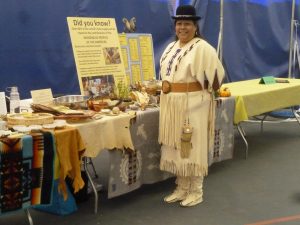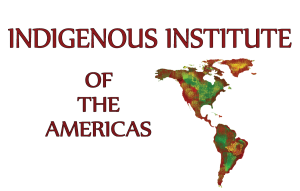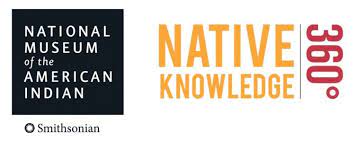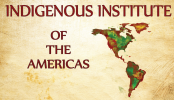Cultural Resources
The Neh Sha market began as an Indigenous Grocery Store where items from our culture were displayed for education purposes. Overtime, we had Native people in Urban areas with no access to Traditional medicines or the knowledge in how to use those medicines. Our store is usually done in a pop-up format at powwows, multicultural festivals and by special requests. We are a supplier to Indigenous organizations, Native Student Groups and Universities. For more detailed information contact, Annette Anderson, Council Secretary at 469-626-8099.

Welcome to our resources page for anyone interested in learning accurate information about Native Nations in this Hemisphere.

.
With over 574 sovereign Federally Recognized Tribes, that does not count Native Nations who are state-recognized or Nations that were detribalized by Federal policies. It has been hard to educate the community about Native culture through digital services because that is not the traditional method we use to share our knowledge. We are a culture of oral traditions. We are many cultures whose original ties are to the land of our origin stories. Our ceremonies, language, medicine ways, spirituality, foods, songs and more emerged from these origins. Basic knowledge of Native culture should include the concept that migration, whether voluntary or through force, has impacted the foundation of knowledge for many Native people. Our organization seeks to make sense of these many stories and how they may relate to our world today.
The Internet and our libraries need to be more accurate about our cultures. Even our recommendations might change if the content changes. So this is a checklist for educators and families seeking knowledge about their own Nations.
- Look for content written by Native authors or Native organizations whose mission is related to preserving knowledge. Google the authors to see if they acknowledge their tribal affiliations. You must go beyond the Amazon book descriptions.
- For youth books/content, we recommend you always see if the stories have been reviewed by the American Indians in Children’s Literature website. Check the author and the title. A good guideline is to look for authors who write about their Nation, not stories about other Nations.
- For videos and internet content, go straight to the Nation you want to learn about. What if you need to know which Nation to research? Use your instincts. For example, if you are curious about powwow dancing, ask Google, “Which American Indian or Native American Nation claims to be the origin of that dance?”. Then go to that Nation’s website and first look for content there. If you find nothing, do the same for content on YouTube by the Nation or Podcasts with Native people from that Nation.
- For High School curricula (10-12 Grade), IIA had the honor of contributing to writing the American Indian/Native Studies course for the Grand Prairie ISD in Texas. As of February 2024, the course has received approval as an Innovative Course by the SBOE, which means any school can ask their school district to approve the course for their district. We also assist with a summer teachers’ education week to prepare educators who want to teach accurate and vibrant content in their schools. Please consider approaching your district to build this course into your school.
- We also recommend that you consider learning about Traditional Indigenous methods of teaching so that Native students and Native families will have an opportunity to learn in ways to bring more value to the content you teach.
10 Rules for Teaching Native Students
We want to help guide you and your family or classroom to a more accurate depiction of our history and contemporary lives. We are sharing some of our favorite resources, knowing there are hundreds of unique resources today. We hope you join us in trying to positively influence our culture’s portrayal of this generation of children.
Seed Ambassador Program
We enjoy developing new materials that connect Native knowledge with contemporary STEM education. Reach out to us for consultation, and we will help. We hope to meet with you someday to work together for a healthier representation of our many cultures.



